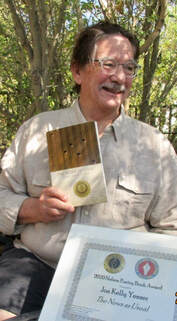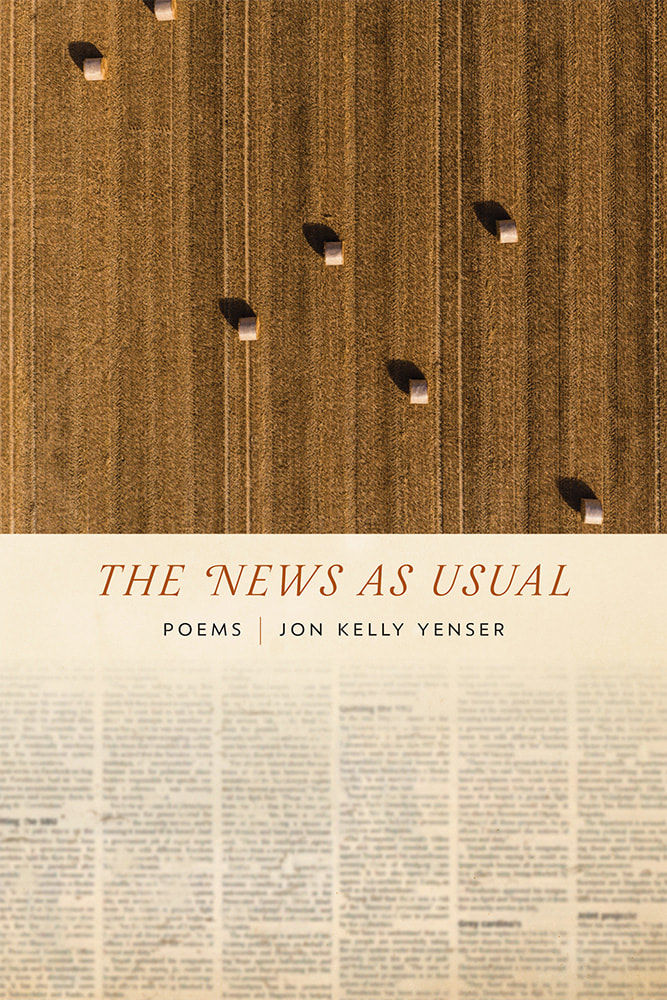Of all our poets, he seemed most attentive to the wonders of language in his evocation of Kansas. My inadequate commentary on his superlative and complex book of poems follows.
The title for Jon Kelly Yenser’s 2019 collection of poems, The News as Usual, accurately and profoundly describes his poetry although the “usual” here is shown to be startling and wondrous and occasionally wry and subtly humorous. Yenser writes from the ground up in choosing both his words and the subjects for his poems, reflecting his recognition that the "news," that is, ordinary life during all seasons in Kansas—in fields, in the backyards of its small towns, and in friendships—can be astonishing.
Neither idealizing nor prettifying his Kansas, Yenser chooses language precisely and astonishingly. He creates metaphors that make the familiar spring wondrously into new life, thereby making the usual news become unusual. Thus, in one poem he may refer to “the burnt umber of milo” and in another to “rusty milo.” Attuned to the seasonal, he refers to summer’s “frenzied raspberries” and to spring’s forsythia as “ornate as art deco, . . . offering us gild antennae.” Literary allusions intersect with astonishing, commonplace words such as “kerflooey” or newly generated words such as “zitty,” playful and humorous.
The “news” which Yenser’s poetry focuses on most frequently is seasonal and temporal in addition to his friendships with dogs and his dying and stalwart neighbor Fred. He keeps his eye peeled for owls. A journey to Guatamala, however, proves largely distracting. Throughout this collection, Yenser is most consistently aware of seasonal changes close to home, to the simultaneous wonder and tenuousness of life close by. His news is expressed in language nuanced, multi-faceted, often punning, playful, and surprising. Through his stunning choice of words, his “usual” becomes imbued with the unusual and memorable, the ordinary with the extraordinary and surprising. Thus, in a brief poem, he contemplates Fall: “What’s done is done / almost now almost /all the dun leaves / have come undone.” In the conclusion of a long poem, titled “Cleaning Up in October,” Yenser’s description of an owl—“quiet as a moth/ over the soccer fields, listening/for the click/ of the smallest teeth/ all over town, from love, habit,/ and the coming cold”—evokes all beings as they persist in ongoing life. Yenser’s poetry--his incisive choice or words, his incise wit--makes me aware of how the usual becomes wondrous, the ordinary memorable and amazing. In his poetry, the usual news in Kansas becomes astonishing and memorable.”

Following her retirement in 2001, she turned to writing poetry, and in the last twenty years has published numerous chapbooks as well as five collections of poetry (Conversations, Her Voice, Mrs. Noah Takes the Helm, The Sauntering Eye, and Water-Gazers).




 RSS Feed
RSS Feed